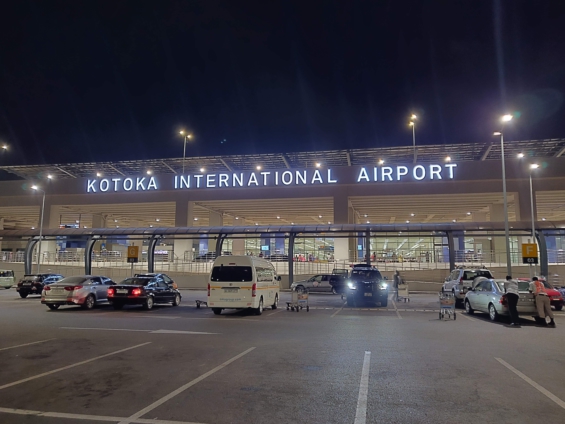LGBTQ Bill is Contrary to Ghana’s Own Constitution, Do Not Pass it - UN to Gov't
The recent remarks made by the UN High Commissioner for Human Rights, Volker Türk, regarding Ghana's proposed "Human Sexual Rights and Family Values Bill, 2024," are drawing significant attention. Türk expressed deep concern over the implications of this bill, which he described as profoundly disturbing.
Related To This: Parliament Passes Controversial Anti-LGBTQ+ Bill After 3 Years of Deliberation
In his statement, Türk highlighted several troubling aspects of the bill. He emphasized that the legislation not only expands the scope of criminal sanctions against individuals identifying as lesbian, gay, bisexual, transgender, transexual, and queer (LGBTQ+), but also threatens legal repercussions for those perceived as allies of the LGBTQ+ community.
In his statement, Türk highlighted several troubling aspects of the bill. He emphasized that the legislation not only expands the scope of criminal sanctions against individuals identifying as lesbian, gay, bisexual, transgender, transexual, and queer (LGBTQ+), but also threatens legal repercussions for those perceived as allies of the LGBTQ+ community.
Türk called for the bill to be rejected before it becomes law, urging the Ghanaian Government to uphold the rights of all individuals to live free from violence, stigma, and discrimination, regardless of their sexual orientation or gender identity.
Furthermore, Türk underscored that the bill goes against Ghana's own Constitution and its commitments under regional and international human rights frameworks. By criminalizing consensual same-sex conduct and impeding the work of human rights defenders, educators, healthcare providers, landlords, and others, the bill restricts fundamental freedoms such as freedom of association and expression.
Furthermore, Türk underscored that the bill goes against Ghana's own Constitution and its commitments under regional and international human rights frameworks. By criminalizing consensual same-sex conduct and impeding the work of human rights defenders, educators, healthcare providers, landlords, and others, the bill restricts fundamental freedoms such as freedom of association and expression.
Related To This: US Ambassador to Ghana Condemns Passage of Anti-LGBT Bill
The High Commissioner warned that enforcing criminal sanctions for consensual same-sex relationships not only violates core human rights principles of equality, non-discrimination, and privacy but also fuels prejudice and exposes individuals to various forms of abuse and discrimination.
The High Commissioner warned that enforcing criminal sanctions for consensual same-sex relationships not only violates core human rights principles of equality, non-discrimination, and privacy but also fuels prejudice and exposes individuals to various forms of abuse and discrimination.
Türk emphasized the detrimental impact of such legislation on access to essential services like healthcare, education, and housing, perpetuating systemic discrimination.
In conclusion, Türk emphasized that the passage of the bill would have corrosive effects on Ghanaian society at large. He reaffirmed his Office's commitment to collaborating with the Ghanaian Government and local partners to ensure the country upholds its human rights obligations and commitments, in line with the 2030 Agenda for Sustainable Development.
In conclusion, Türk emphasized that the passage of the bill would have corrosive effects on Ghanaian society at large. He reaffirmed his Office's commitment to collaborating with the Ghanaian Government and local partners to ensure the country upholds its human rights obligations and commitments, in line with the 2030 Agenda for Sustainable Development.





Comments
Post a Comment